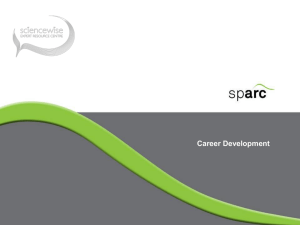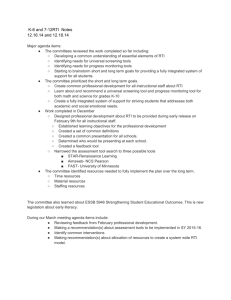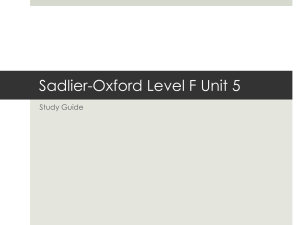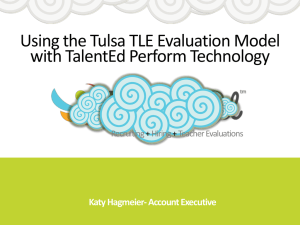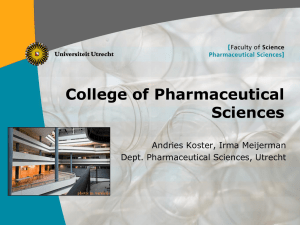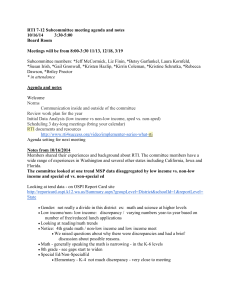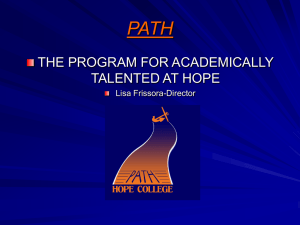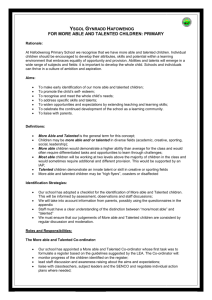Policy 342.3-Exhibit - Talent Development Resource Guide
advertisement
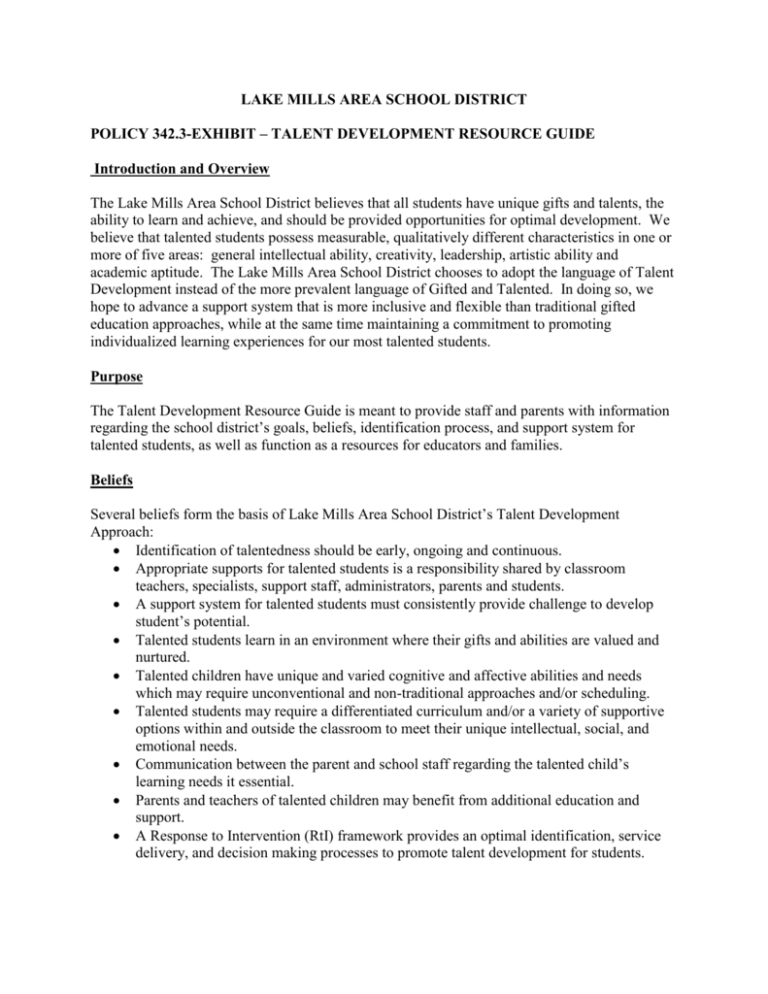
LAKE MILLS AREA SCHOOL DISTRICT POLICY 342.3-EXHIBIT – TALENT DEVELOPMENT RESOURCE GUIDE Introduction and Overview The Lake Mills Area School District believes that all students have unique gifts and talents, the ability to learn and achieve, and should be provided opportunities for optimal development. We believe that talented students possess measurable, qualitatively different characteristics in one or more of five areas: general intellectual ability, creativity, leadership, artistic ability and academic aptitude. The Lake Mills Area School District chooses to adopt the language of Talent Development instead of the more prevalent language of Gifted and Talented. In doing so, we hope to advance a support system that is more inclusive and flexible than traditional gifted education approaches, while at the same time maintaining a commitment to promoting individualized learning experiences for our most talented students. Purpose The Talent Development Resource Guide is meant to provide staff and parents with information regarding the school district’s goals, beliefs, identification process, and support system for talented students, as well as function as a resources for educators and families. Beliefs Several beliefs form the basis of Lake Mills Area School District’s Talent Development Approach: Identification of talentedness should be early, ongoing and continuous. Appropriate supports for talented students is a responsibility shared by classroom teachers, specialists, support staff, administrators, parents and students. A support system for talented students must consistently provide challenge to develop student’s potential. Talented students learn in an environment where their gifts and abilities are valued and nurtured. Talented children have unique and varied cognitive and affective abilities and needs which may require unconventional and non-traditional approaches and/or scheduling. Talented students may require a differentiated curriculum and/or a variety of supportive options within and outside the classroom to meet their unique intellectual, social, and emotional needs. Communication between the parent and school staff regarding the talented child’s learning needs it essential. Parents and teachers of talented children may benefit from additional education and support. A Response to Intervention (RtI) framework provides an optimal identification, service delivery, and decision making processes to promote talent development for students. Response to Intervention Response to Intervention (RtI) is a framework of educational decision making and service delivery. This model assumes that each student receives high-quality, research-based, and differentiated instruction from a general educator in a general education setting. At its core, RtI is the practice of: Providing high-quality instruction and interventions matched to student need. Monitoring progress frequently to make decisions about changes in instruction or goals. Applying child response data to important educational decisions. The Lake Mills Area School District is committed to providing optimal learning conditions that support academic achievement for all students. When implemented with fidelity, and RtI framework has the potential for meeting this commitment through the implementation of a multitiered system of support based on sound educational practices. The process also emphasizes the importance of leadership, the use of data to guide instruction, appropriate intervention and practice, parent involvement, and other researched based practices. In the world of Talent Development, this refers to implementing and sustaining efforts which ensure our students have access to differentiated curriculum, flexible pacing, cluster grouping, acceleration, and other universal interventions available to all students in the regular classroom. There are eight non-negotiable essential components of RtI. 1. Evidence-based curriculum and instruction. 2. Ongoing assessment. 3. Collaborative teaming. 4. Data-based decision-making. 5. Fidelity of implementation. 6. Ongoing training and professional development. 7. Community and family involvement. 8. Strong Leadership. Each element is part of an interrelated process that should be applied to every student. RtI creates an integrated and seamless continuum of service that encompasses all staff through a multi-tiered service delivery model. The Lake Mills Area School District’s Talent Development support system adheres to the principles of RtI as the foundation of our practice. Specific aspects related to services, identification, and data analysis will be further explained throughout this resource guide. Approved: 1/13/14
